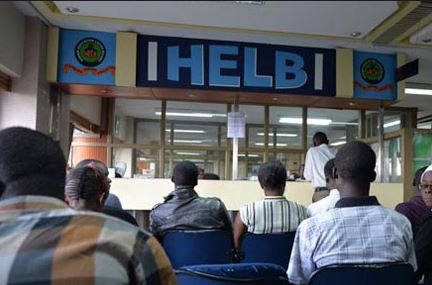
The architects of the Higher Education Loans Board (Helb) had the best intentions at heart. In fact, the board’s tagline says it all ‘Financing higher education in Kenya.’ The loan is granted to students without the lending firm’s assessment of one's assets or credit worthiness. The amount awarded is solely pegged on the borrower’s level of need and verifiable bonafides.
The application process is without bottlenecks; a name here, a signature there, a stamp, submission of the forms and its finished! You sit and wait for the text message informing you that the money has been disbursed. Students celebrate once the money hits there bank accounts and no one mentions the word loan. Majority mention Helb as if it were a lottery they won.